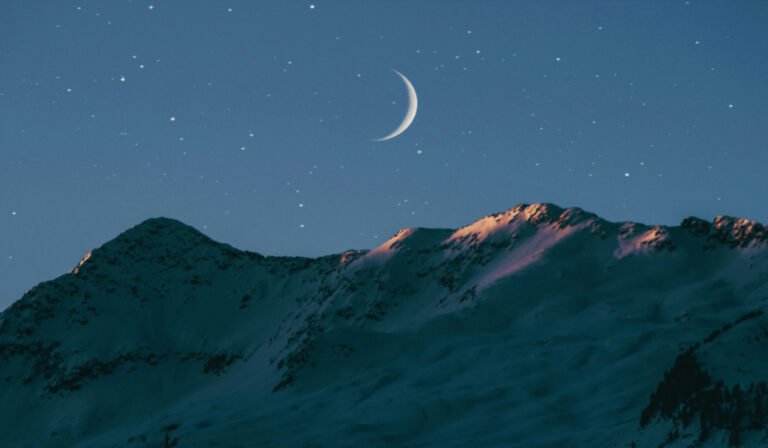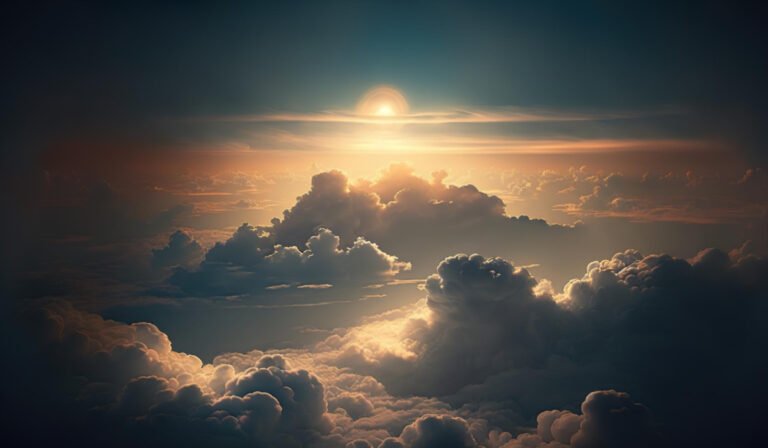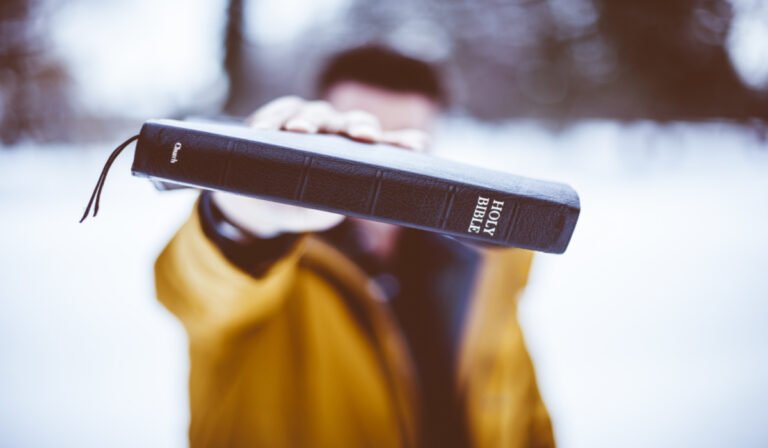a message ignored
Darkness crept across the earth like a heavy storm, choking out kindness and justice. Selfishness filled every heart, and cruelty stained even the simplest joys. The world smothered what was good, leaving few who still cared about right or wrong. Each day people turned further from kindness, laughing at warnings and mocking truth.
Yet one family listened. God saw the destruction and sorrow, but He also saw hope in the stubborn faith of one man. As the ground shook with coming fate, a voice kept rising, calling out through the jeering crowds. The story of that flood is not just history—it’s a warning and a promise that goodness can rise even when the world feels lost.
When Goodness Faded: The State of the World Before the Flood
Before the first drop of rain fell, trouble had already settled over every hill and home. Cruelty and greed marched hand in hand through crowded markets and quiet streets. No one seemed to notice the darkness gathering or cared enough to stop it. The world was tired, its light nearly gone, hearts turned cold like stones. These were the days right before the flood came—days of loud laughter and secret sorrow.
Wickedness in Plain Sight
The signs were everywhere, as plain as mud on bare feet. People walked with pride through streets soaked in selfishness. Greed clung to each deal and decision, smothering kindness before it even took root. It was common to see someone wronged and no one lifting a finger to help.
- Jealousy grew wild, pulling families apart.
- Thieves took what they wanted, and no one cared unless they lost something too.
- Violence became normal, settling arguments faster than words ever could.
Children quickly learned to look out for themselves, their innocence slipping away like water down a cracked path. The strong took from the weak, food and shelter given only to those who could pay or fight for it. Even simple joys, like sharing bread or helping a neighbour, faded into distant memories.
Noah warned anyone who would listen, but most only jeered. People tossed aside the feeling that something was wrong, filling their days with distractions, parties and cruel games. Darkness became so ordinary, no one remembered what real goodness looked like.
The Grief of the Creator
“The Lord saw how great the wickedness of people had become on the earth, and that every inclination of the thoughts of their hearts was only evil all the time. The Lord regretted that he had made human beings on the earth, and his heart was deeply troubled.”
Genesis 6:5-6
Imagine a father watching his beloved children turn on one another, refusing every gentle word and choosing violence instead. That’s the pain written across God’s heart at this moment. Each act of cruelty and every harsh word echoed like thunder, leaving the Creator in sorrow. The world, created with hope and care, now throbbed with wounds too deep for time to heal.
He saw laughter twisted into mockery. He heard promises broken without shame. He watched people once filled with wonder and warmth now move through life cold and empty. The gap between his love and their choices widened, aching like an old scar each day.
God’s grief wasn’t anger that burned quick and bright. It was a slow, heavy sadness, like watching a beautiful garden choked by weeds. He longed for someone, anyone, to remember what was good—and kept hoping, even as the world pressed further away.
The rain had not yet begun, but the sorrow in the Creator’s heart showed just how far people had wandered from the life they were meant to live.
The Call to Build: Noah’s Faith and Obedience
As rainclouds gathered in the distance of prophecy, one man set himself to an impossible task. Noah, the only spark of hope in a world gone wild, listened to God’s call when silence greeted every other warning. God asked him to build something no one had ever seen before—a massive ark, a ship built on dry land, far from any ocean. Every log Noah lifted, every nail he hammered, became an act of trust. This was faith worked out with sore hands and aching arms, standing alone in a laughing crowd. Noah’s obedience stood stark against the world’s darkness like a lantern in the fog.
Building Against All Odds
Noah’s work did not rise quietly behind hedges or out of sight. His ark grew in the wide open, its towering frame a stubborn answer to every lazy rumour and mocking sneer. Each day stretched endlessly, muscles burning as he wrestled heavy timbers. Sweat ran down his back as he measured and cut, propping boards against the sky. The noise of building echoed through empty fields, drawing stares from everyone who passed.
Neighbours whispered as they walked by, shaking their heads at this old man and his splintered hope. They saw madness where Noah saw a promise. But he kept going because his trust in God filled every empty space left by doubt or loneliness.
- Noah built for years with no sign of rain and no helpers but his own family.
- He never turned away from the hard work, even when his hands cracked and his heart ached for a friendly face.
- The silence of faith became his closest companion, broken only by the sound of the work and the distant laughter of others.
Each hammer strike rang with hope, not just for himself but for anyone who might listen. Every inch of the ark shouted a warning and invitation—a place of safety if only hearts would turn.
Mockery from the Masses
The crowds did not stay silent. Laughter followed Noah like a shadow. People pointed and joked about the ship rising in his yard. The idea of a flood seemed as strange to them as building a snowman in summer. They carried on with their busy lives, not sparing a thought for the warnings that drifted in the air each day.
Neighbours found the project ridiculous:
- Jests and taunts: They called it Noah’s folly, betting on how long he would keep at it before admitting defeat.
- Isolation: No one stood with Noah; his family worked alone while everyone else watched from afar.
- Real separation: The laughter wasn’t just noise; it dug trenches between Noah and his neighbours, making the distance wider every day.
Noah felt the bite of their words. The loneliness pressed heavy, not just from being different but from watching people pass up the chance for shelter. Still, he spoke the truth. Still, he warned them. Even as their jokes grew meaner and their backs turned harder, he waited for someone to take his message to heart.
In this simple act of stubborn obedience, hope sparkled against the flood of cruelty. Noah’s work stood as a call for anyone to listen, even as mockery rose like water around his feet.
A Message Ignored: Warnings and Rejection
The wooden frame of the ark rose higher, casting a patchwork shadow across dry ground. Each day, the warning rang out—a flood was coming, and nothing would stop it. Yet the noise of the world drowned out both the hammer and the voice calling for change. People had grown deaf to warnings, hearts hardened by comfort and habit. The simple message, meant to save, became a joke on busy tongues.
A Voice in the Wilderness
No one expected Noah to stay silent, and he never did. He spoke plainly, arms stained with sawdust and sweat, about the rain and judgement that were coming. Every word he shared came from a place of urgency, not bitterness. Each cry was a lifeline thrown into a rushing river; he hoped someone would grab hold before it was too late.
Neighbours laughed as they passed him, but Noah kept warning them. The village square became his pulpit, the ark his sermon. His eyes carried a weight that few cared to meet. Some paused out of curiosity, shaking their heads at the boldness of his claim. Others walked on, grinning as they shared rumours about the “flood-builder.”
Noah refused to hide or water down the truth. Even as mockery rose around him, he sounded the alarm with the stubbornness of hope. He stood apart, the lone voice no one wanted to hear, yet he would not stop speaking. This warning was not just a formality. It was last chance mercy, still held out with open hands.
- Noah’s message never changed, even as the crowd’s laughter grew louder.
- He wore rejection like another layer of clothing, but kept going.
- Every warning offered a way out—if only people would listen.
People Carry On Regardless
Life outside the ark moved at full speed. The people of the town danced in candlelight, traded in the markets, and planned lavish feasts. Their minds were set—nothing would spoil the next celebration or slow down business. There was always another party to attend, another deal to strike, another grudge to keep.
Each warning rolled off them like rain on oiled skin. They saw Noah’s work, heard his warnings, and shrugged. The flood sounded as unlikely as a fire in the ocean. As the days passed, their hearts grew harder. Words like “repentance” and “change” felt old-fashioned, even silly.
- Children played in dusty streets, ignoring the growing ship in Noah’s yard.
- Young people chased one thrill after another, never giving thought to tomorrow.
- Elders dismissed everything as a scare tactic, something they had survived before.
No matter how loud Noah called or how massive the ark became, nothing pierced the wall they built around their hearts. Even as the first dark clouds appeared, the world carried on as if Noah was invisible.
The story is a mirror: There are times when warnings go out and people laugh, carrying on as if nothing could ever change. The message was clear, but most closed their ears. The world kept spinning, blind to the storm about to break.
The Flood Unleashed: Forty Days and Nights of Rain
When the last warning faded into stubborn silence, the sky began to change. Heavy clouds stacked above the hills, thick and swollen, holding breath like a promise about to break. Then, with a deep roar, the heavens opened. Rain hammered the dusty ground, drumming a wild rhythm that drowned every memory of sun. For forty days and forty nights, water fell without pause, swallowing up what was once familiar.
Some tried to escape to higher ground, clutching children, shouting for loved ones now lost from sight. But there was nowhere safe. Rivers burst their banks. Roads turned to swirling streams and fields disappeared under a sea without end. The great flood swept across the world, changing everything in its path.
Sheltered Inside the Ark
Inside the ark, the storm sounded like war. Each drop struck the wooden roof and sides with a sharp, steady beat. In the gloom, the small windows let in only the faintest, grey light. Yet inside, life moved on—a careful routine trying to balance relief and fear.
Noah gathered his family each morning, faces lit by the flighty glow of lanterns. They prayed with hearts both grateful and anxious. Some days, laughter slipped out from the children as they cared for the animals, their voices a small rebellion against the weight outside. The animals filled every space, their restless noises a reminder that there was still life to tend and protect.
- Relief sat with them, knowing that God had kept his promise and held them safe above the chaos below.
- Worry clung to their quiet moments. Each rumble of thunder, every creak of the ark, brought a jolt of doubt. Would the rain ever stop?
- Faith carried them through the storm. Even as sky and earth blurred together and the world outside vanished, they held to the hope that this was not the end but the chance for a new beginning.
Days blurred as they fed animals, tended the ark, and comforted one another. The storm outside raged on, but inside the ark, faith stood watch through each long night.
Destruction Across the World
Beyond the walls of the ark, nothing remained untouched. Floodwaters ripped through villages, tore down houses, and swept ancient trees from their roots. Cities built over lifetimes vanished beneath the swirling current. The laughter and shouts that once filled marketplaces and homes became just memories, carried away by the rolling tide.
The loss was total. Fields that once gave bread to hungry families now lay buried deep. Familiar paths and gardens lay hidden under an endless sheet of water. Even the tallest hills and proudest buildings disappeared, leaving only the ghost of what once was.
Yet, in this sweeping loss, a promise lingered. The world was being washed bare, a clean slate painted by wind and rain. As the storm pressed on, the hope for something new grew stronger inside the ark. Every sorrow carried the faint outline of tomorrow—a world made clean, ready to start again.
The story of those forty days and nights is not only one of ruin, but of waiting, mercy, and the chance to begin anew.
Conclusion
This story shines with lasting value, reminding readers that even when cruelty feels common, small acts of trust and kindness still matter. The world outside the ark lost its way, but faith survived in those who listened and cared. Choosing hope over mockery takes courage, especially when kindness is rare and warnings are easy to ignore.
Today, the story quietly asks people to pause, consider their choices, and keep goodness at the centre of their days. Like a light flickering against the storm, one person’s faith can shape something new and strong. Thank you for reading—share your thoughts, and carry these lessons as you move forward!








